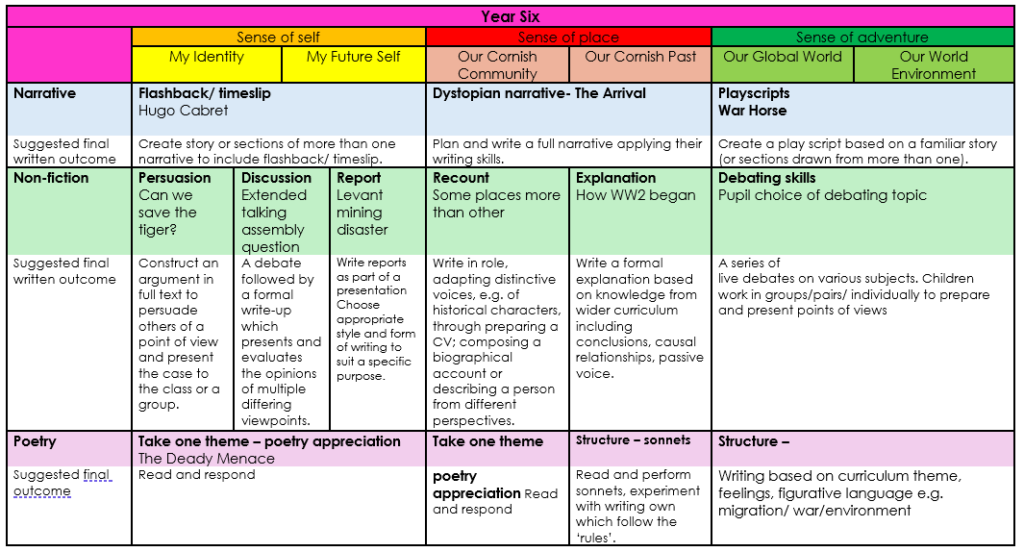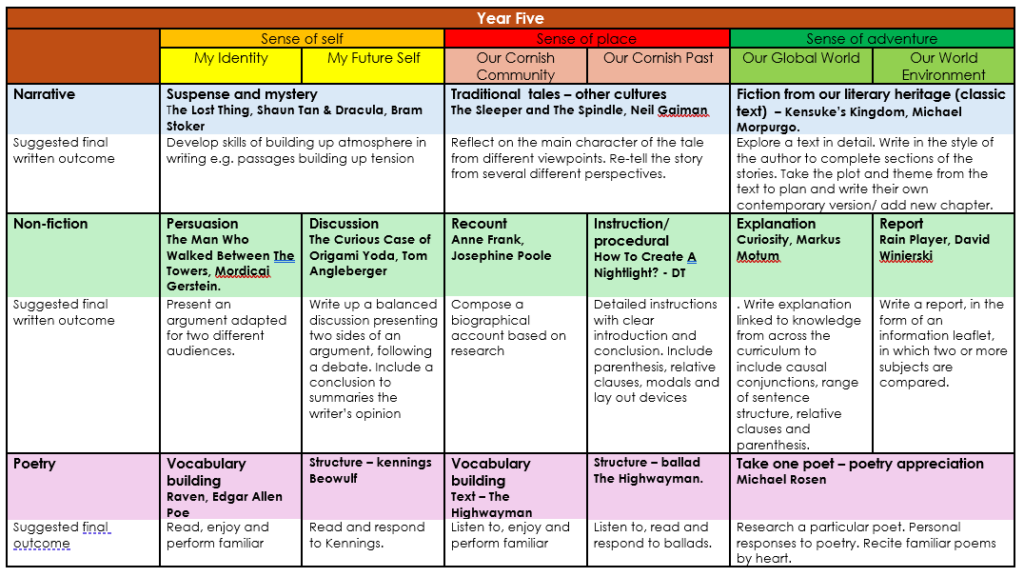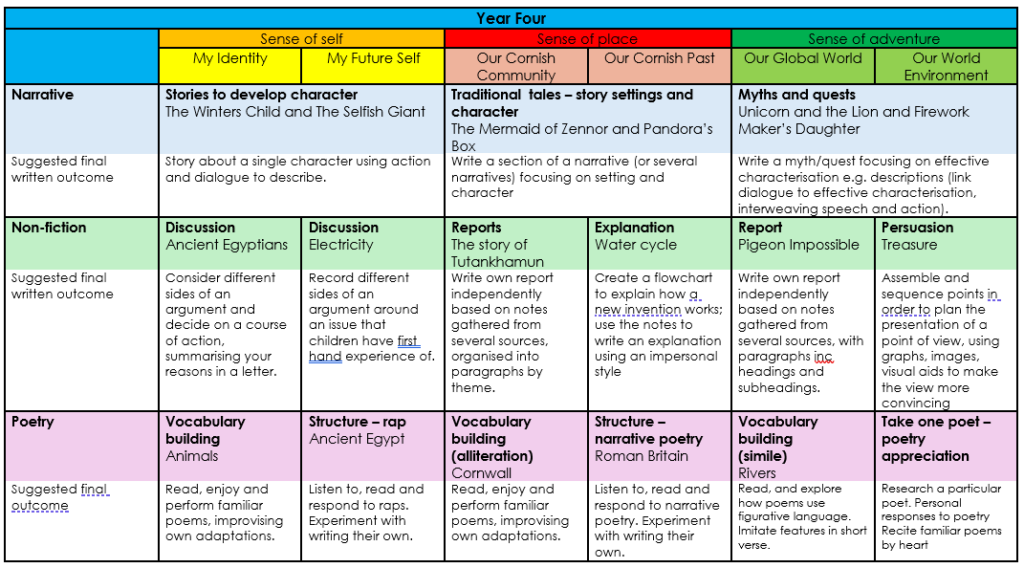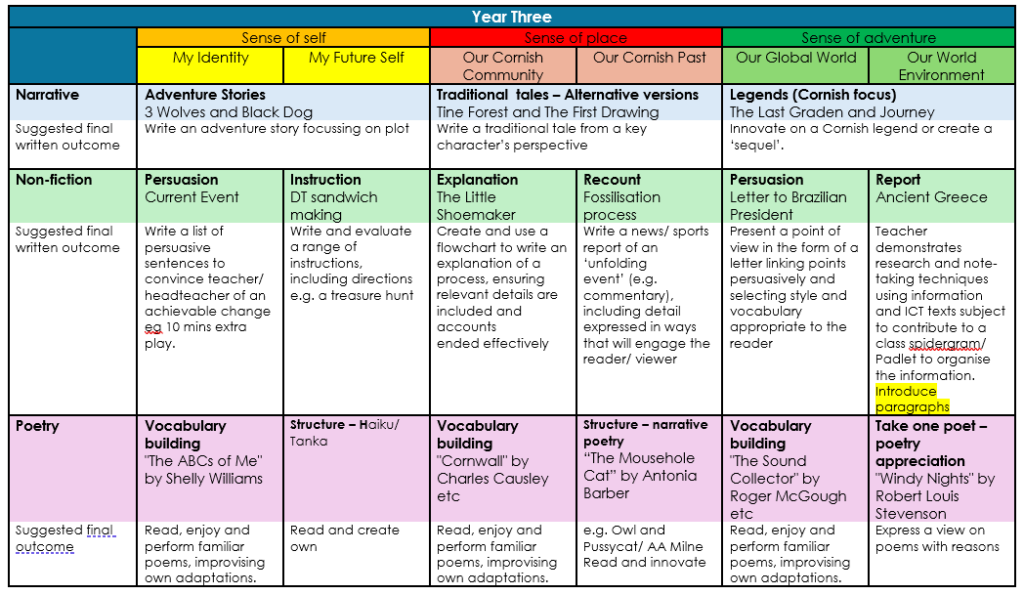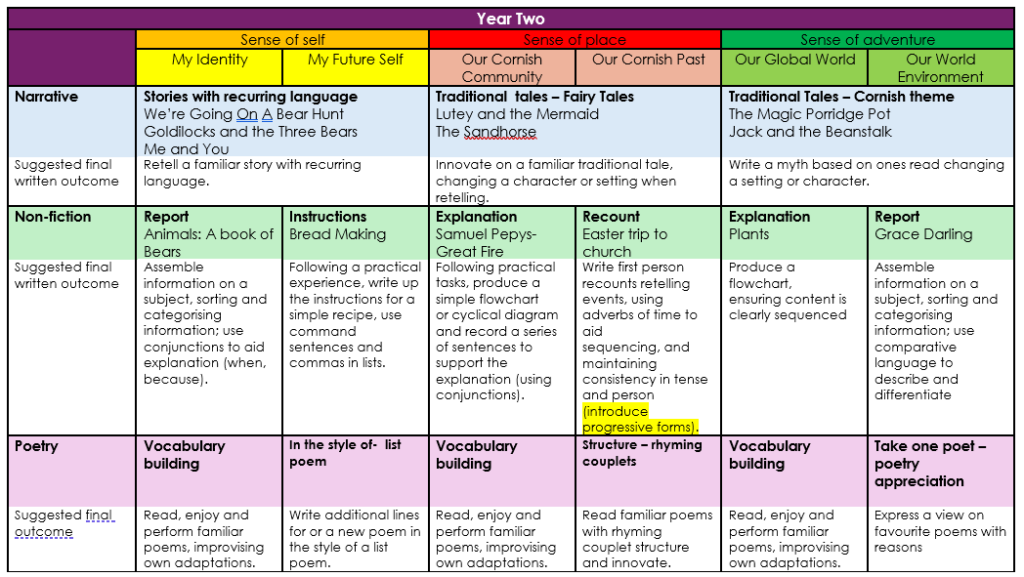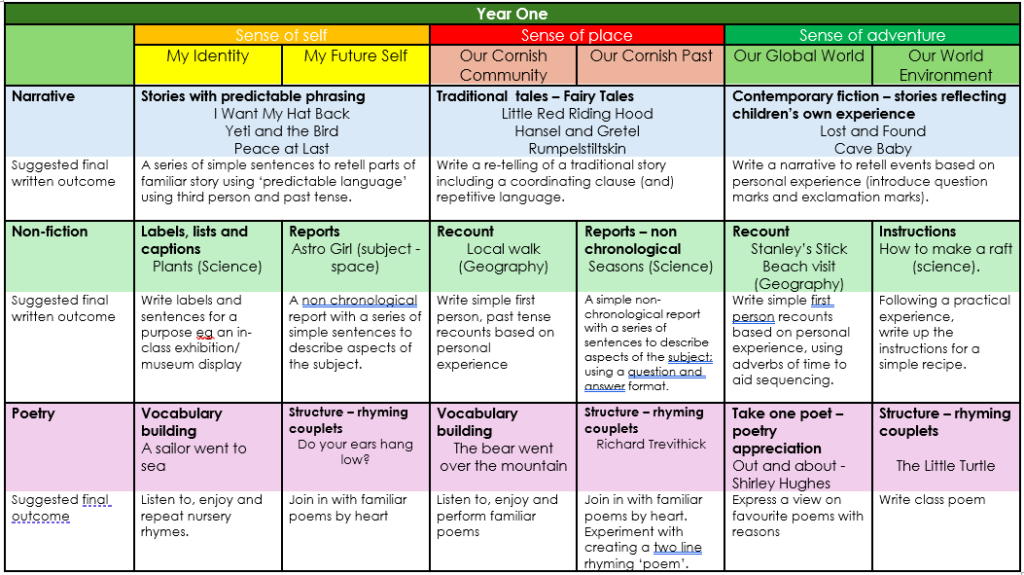Writing
Treloweth School Writing Curriculum Statement
Intent
At Treloweth, we know that a strong grounding in English will impact every aspect of a child’s life, both in education and in their future beyond school. Writing is a skill that empowers pupils to express themselves, shape their thinking, and engage meaningfully with the world. We are committed to preparing children with the essential writing skills they will need for later life by providing an enriched and engaging curriculum, where writing has purpose, is inspired by high-quality literature, and is woven meaningfully across the curriculum.
Books are at the heart of our writing curriculum. They act as catalysts for creativity, developing curiosity, providing rich vocabulary, and offering a sense of adventure for children as they explore new worlds, perspectives, and ideas through reading and writing. Quality texts inspire quality writing.
This reflects the overarching aim for English in the National Curriculum:
“To promote high standards of language and literacy by equipping pupils with a strong command of the spoken and written language, and to develop their love of literature through widespread reading for enjoyment.”
At Treloweth, our Values and Curriculum Drivers shape everything we do in writing:
- Curious– We foster curiosity by encouraging children to explore language, ask questions, and take risks in their writing.
- Kind– We value writing as a way to share thoughts, feelings, and empathy, helping children reflect on their relationships with others.
- Connected– We use writing to build meaningful connections — between texts, between curriculum areas, and between children and their local and global communities.
Through writing, children develop their:
- Sense of Self– exploring personal identity and expressing individual voice;
- Sense of Place– connecting with local culture, Cornish heritage, and wider community;
- Sense of Adventure– embracing challenge, imagination, and creative exploration.
We intend for all pupils to:
- Become confident, independent writers who can sustain writing at length and with increasing sophistication.
- Be exposed to high-quality texts that model outstanding writing practice across a range of genres.
- Understand the purpose and impact of writing, carefully selecting vocabulary and structure to engage their audience and evoke emotion.
- Plan, practise, edit, and refine their work, developing resilience, ambition, and pride.
- Take risks, view mistakes as positive learning opportunities, and celebrate writing at every stage.
- Access a broad and inclusive curriculum, with tailored support where needed, so every child feels successful and proud of their achievements.
- Write for real reasons, with purposeful links to curriculum areas and real or imagined audiences.
Implementation
Writing is taught through Treloweth’s S-Plan, our structured, consistent approach to planning every unit of work:
- Hook – Stimuli and books spark curiosity and provide meaningful contexts.
- Drama/Oracy – Children talk before they write, developing ideas through speaking and listening.
- Purpose – The reason for writing is always clear to both teachers and children.
- Modelling – Teachers model the craft of writing explicitly and consistently.
- Drafting – Children explore and develop their writing, supported by feedback.
- Publishing – Final pieces are published, celebrated, and shared to give writing real purpose.
Each lesson is structured using our Lesson S-Plan to provide consistency and clarity:
- WAGOLL (What A Good One Looks Like) – High-quality models linked to the text and genre.
- Vocabulary – Exploration of ambitious and precise language.
- Sharing Learning – Children share work-in-progress for feedback and discussion.
- Grammar – Contextualised grammar teaching linked to the writing outcome.
- Modelling – Live modelling by the teacher, demonstrating writing choices.
- Independent Writing – Opportunities to apply skills independently.
- Live Marking – Responsive marking and feedback during the lesson.
Our pedagogy draws from:
- Process-Oriented Approaches – Emphasising the importance of drafting, revising, and refining.
- Genre-Based Approaches – Teaching the features of text types to empower children to write confidently in a range of styles.
- Multimodal Approaches – Incorporating technology, performance, illustration, and media to make writing vibrant and relevant to children’s lives.
Everything links back to our school values:
- Writing curiously explores ideas across subjects, from Cornish myths to scientific reports.
- Writing kindly enables children to reflect on relationships, fairness, and empathy, building positive self-esteem.
- Writing connects children to their world, giving them a voice in their community, their learning, and their future.
Impact
By the time they leave Treloweth, children will:
- Be confident, articulate, and independent writers, with the stamina and skill to write across genres, subjects, and audiences.
- Understand that writing is not just a product but a process — planning, drafting, revising, improving, and publishing with pride.
- Use ambitious vocabulary and secure knowledge of grammar and punctuation to create writing that has purpose and impact.
- Be able to write for real audiences, in real contexts, developing their sense of identity and connection to others.
- Take pride in their writing and work with care, demonstrating our values of being Curious, Kind, and Connected.
- Be well-prepared for secondary education and beyond, with writing skills that will serve them in all aspects of life.
Through writing, Treloweth children develop their sense of self as authors, their sense of place within their community, and their sense of adventure as they discover the power of words to change the world around them.
Writing at Treloweth is not just about producing text — it’s about shaping identity, exploring creativity, and building meaningful connections.

